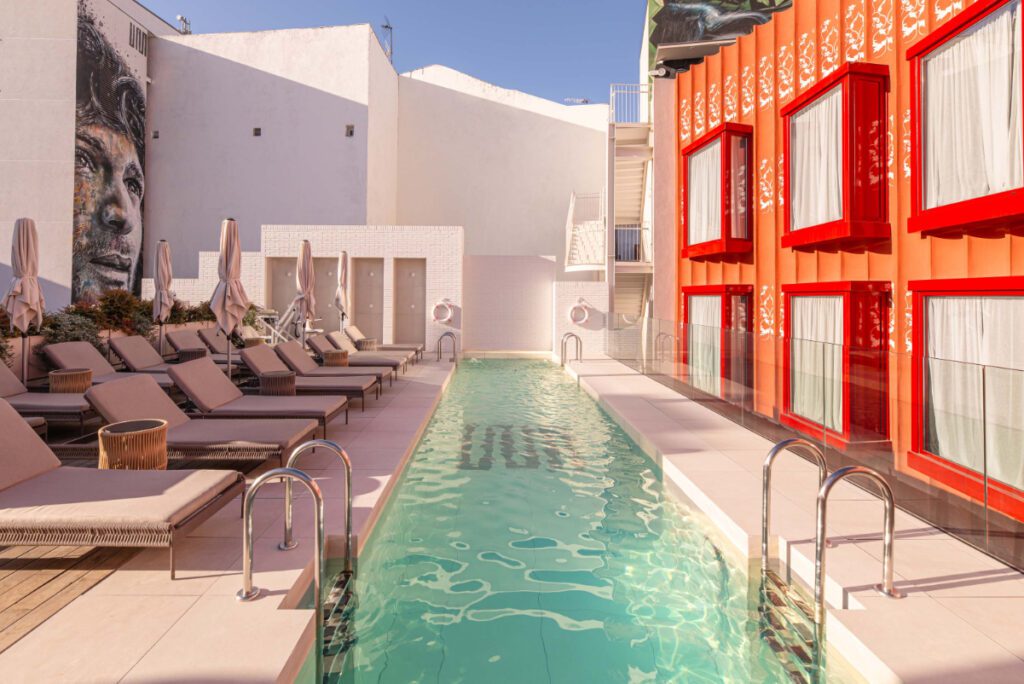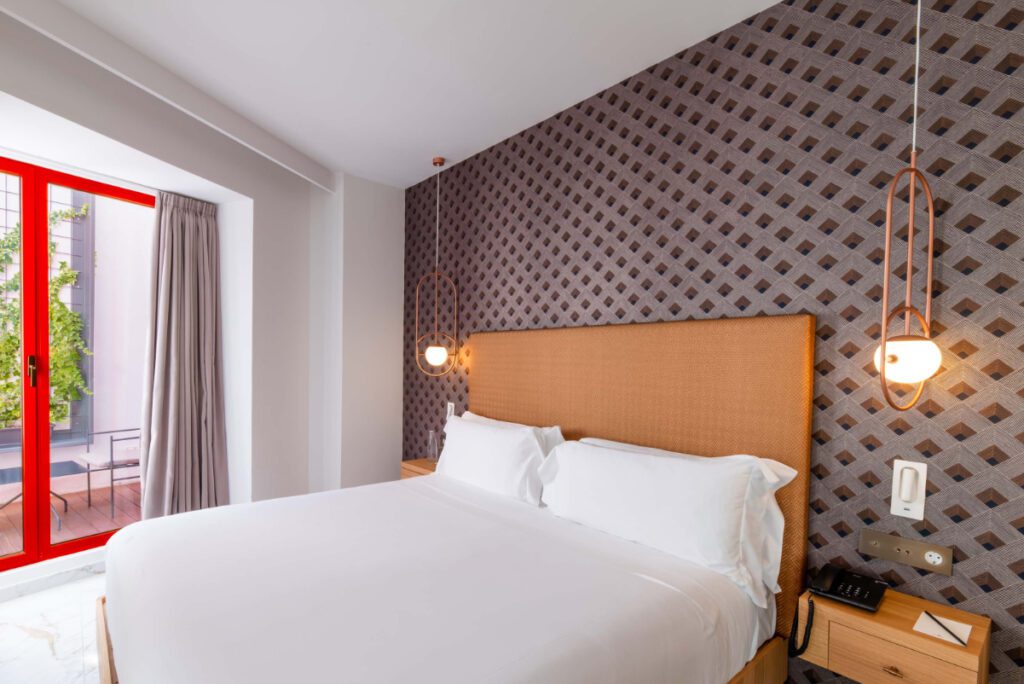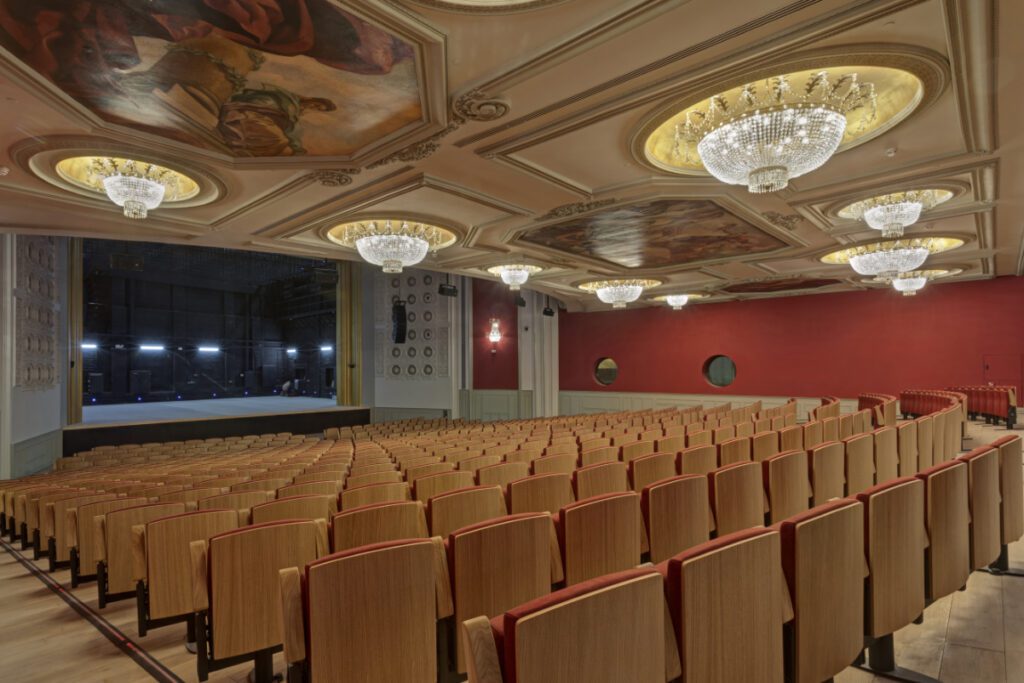It’s been over a year since the Umusic Hotels chain launched its first property in Madrid. So Skift caught up with the brand’s president, Jordi Solé, to learn about the brand’s strategy.
Umusic Hotels, the live-performance-themed brand created by Universal Music Group (UMG) and investor Dakia Entertainment Hospitality Group, is scoping out new hotels in Europe, the U.S., and Latin America. Solé said there was potential for 200 properties worldwide.
“UMG is the largest music company in the world,” Solé said. “So there are many locations where we could bring a hotel and entertainment asset, and UMG would be willing to plug in and deliver the experience.”

Madrid Hotels
Speaking from the hotel brand’s headquarters in Miami, Solé had just returned from a month of business trips to Europe, the east and west coasts of the U.S., and Latin America.
Umusic Hotels currently has one hotel in Madrid, Umusic Hotels Teatro Albéniz, open since September 2023, and a second property, also in Madrid, under renovation and due to open in 2027.
Both Madrid hotels include restored historic theaters. Solé said that future projects will always have adjacent spaces that deliver live music and entertainment — whether that’s an arena, stadium, theater, or nightclub.

Riding the Live Tourism Trend
The Umusic brand is riding a wave of interest in “live tourism,” one of the Skift Megatrends of 2025.
The Umusic Hotel Madrid’s guest rooms feature small Bluetooth Marshall amp speakers in the ceilings. The hotel features a vinyl library, a rooftop bar, and a music venue.
The hotel has hosted concerts, album launches, and parties for renowned artists. Community engagement and being a home to emerging talent are important goals, too, and so are partnerships with local schools.
Solé said: “Music is not just part of the décor, it’s the soul and centrepiece of the guest experience. In Madrid, we have revived the historic Teatro Albéniz, making this a cornerstone of the cultural life in the city.”
The nearly 900-seat Teatro Albéniz, originally built in the 1940s, shares its entrance with the hotel and is an important part of Umusic Hotels’ overall business.
The theater reopened with a show starring Antonio Banderas and is currently showing Andrew Lloyd Webber’s Phantom of the Opera until March 2, 2025. In the summer, it will host a Universal Music Festival.
With seven shows a week, the theater attracts many locals who might also enjoy the hotel’s food and beverage offerings and amenities. Plus, it can cross-sell theater and entertainment to overnight visitors.

Hotel Investor Interest
For developers and owners, Solé reckoned: “We offer a distinctive proposition, a brand that not only drives room and food-and-beverage revenue but also entertainment revenue.
Umusic Hotels Teatro Albéniz is owned by the Spanish real estate investment trust Silicius, which reported 4.7% rental income growth in the first half of 2024.
UMusic Hotels’s upcoming project at Plaza de Canalejas in Madrid involves a deal with Pescaderias Corunesas to manage the restoration of three historic buildings: the Reina Victoria Theater, the Meneses Building, and the Casa Allende. The hotel will have 70 rooms and suites, as well as a spa and fitness center, a rooftop bar, and a theater with about 600 seats.
There’s also a plan to add a Umusic Hotel to an entertainment district, Arena Del Rio, that’s under development in Barranquilla, Colombia.

Direct Distribution
In terms of distribution, generating awareness of a new brand must take time, but Solé said the hotel has three main sources of bookings: corporate meetings and events, with the theater serving as a distinct asset; OTAs; and Universal itself.
“UMG has 7,000 artists worldwide and 70 labels, and it has a tremendous database of loyal fans. Direct-to-consumer reservations have been very powerful,” he said, adding that the hotel has been running at 70% occupancy with an average daily rate of €400 (about $420).
Potential Critics
Music fans can sometimes be a tough bunch that often either are, or pose as being, “anti-corporate.” Some people might see the new hotel brand’s recent €400 nightly rate as something of a cash grab targeting wealthy tourists instead of so-called “real music fans.”
Umusic will need to do some brand management to ensure that each property truly lives up to the brand promise of “community engagement” and “supporting emerging talent.”
The brand may also need to be careful that its effort to restore historic theaters and support the development of local music districts isn’t just a way to get tax breaks and government support. The brand will need to dodge potential criticisms that they might be turning landmarks into expensive tourist traps.

Tapping Into a Star Network
So, the next time Taylor Swift, Drake, or another Universal artist plays in Madrid, Solé hopes many of their fans will stay at his hotel.
“We aspire to be a home for UMG artists and offer unique opportunities to engage with their fans in an intimate setting,” Solé said. “If they sleep in the hotel or not, that’s their final decision. We are their home where they can meet and greet their fans, find venues to play, find unique spaces to launch their new songs.”
Do the Madrid hotels provide a blueprint for future projects? “For sure,” Solé said. “I see a very clear path moving forward where we can partner with local developers who want to transform heritage-protected spaces and bring them back to life, while music and entertainment can play a strong role in the operations.”
“We’re looking at several projects across Europe, which are still in the early stages, but they have components similar to what we have done in Madrid.”
Accommodations Sector Stock Index Performance Year-to-Date
What am I looking at? The performance of hotels and short-term rental sector stocks within the ST200. The index includes companies publicly traded across global markets, including international and regional hotel brands, hotel REITs, hotel management companies, alternative accommodations, and timeshares.
The Skift Travel 200 (ST200) combines the financial performance of nearly 200 travel companies worth more than a trillion dollars into a single number. See more hotels and short-term rental financial sector performance.
